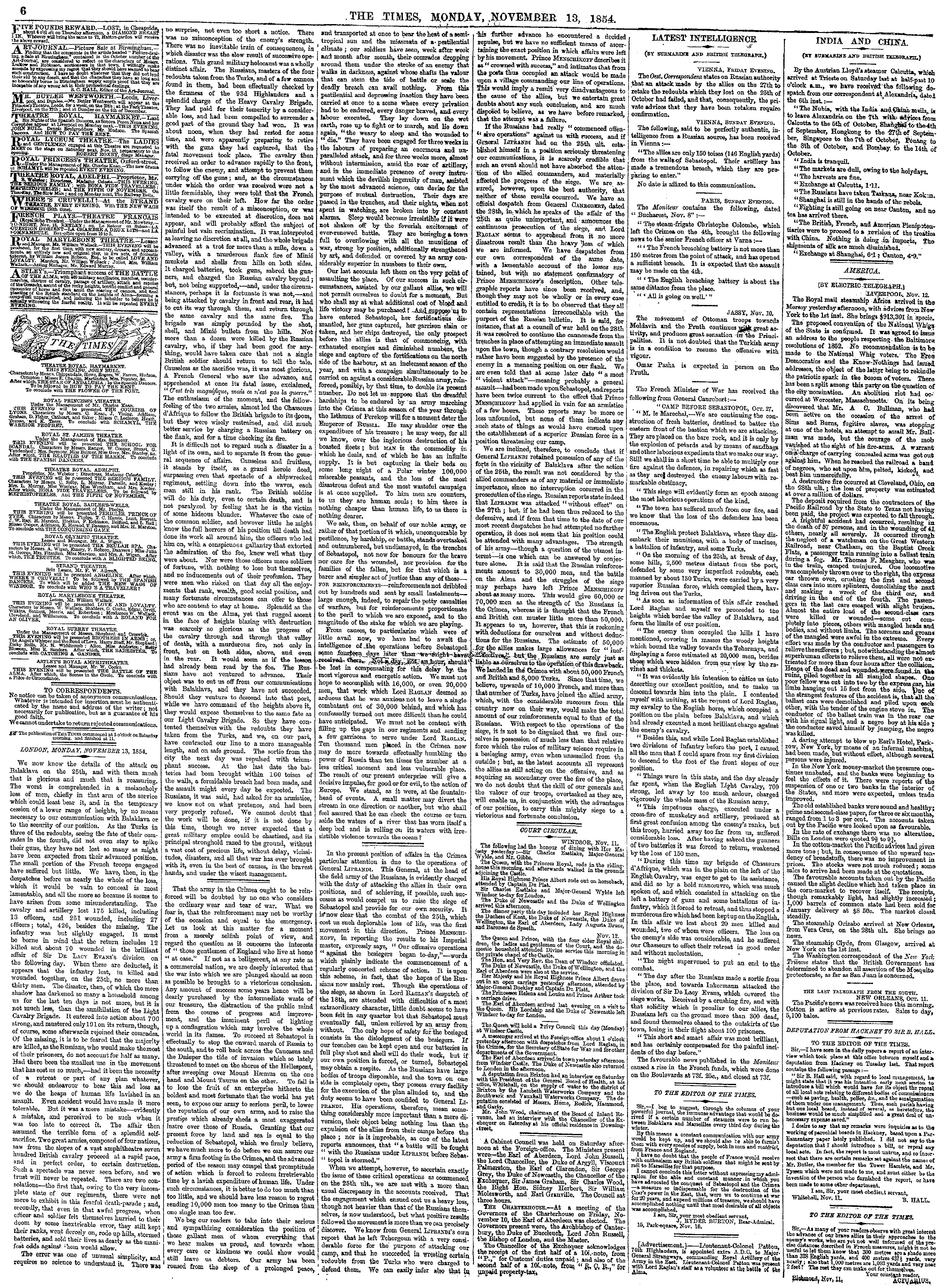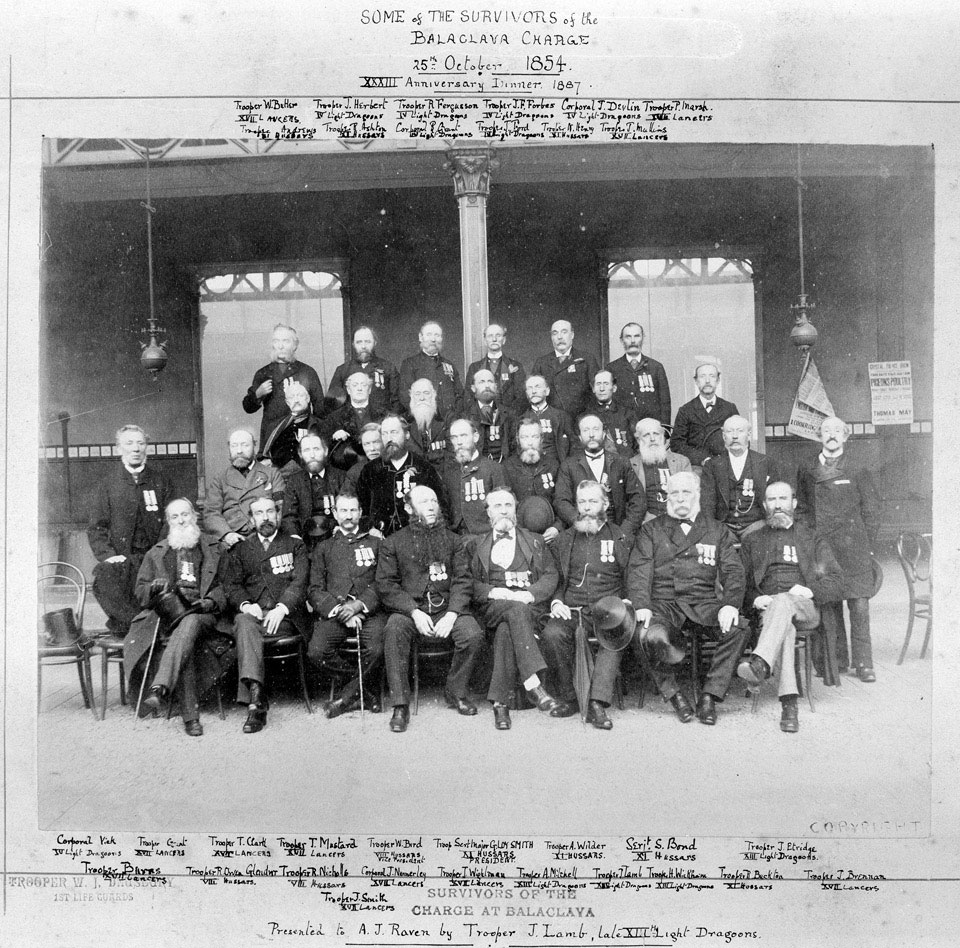
Initially, the charge was not considered a significant event. Though it was by no means a trivial loss, in the Battle of the Alma, the previous major battle, the allied troops lost 3,000 men.
“Later in the day the Light brigade charged down a valley, they had no business to have gone there, they shot about 300, but can’t get the numbers exactly, they took twenty five guns and killed an immense number, but were totally annihilated by batteries on each side of the valley. The weather is fearfully cold…”
~ Temple Godman of the 5th Dragoon Guards in a letter to his brother, 1854
“Three times the number of men lost in the charge would die of disease in a week and those in authority would think nothing of it”
~ British surgeon, c. 1855 to 1865
...then came the news reports. The Crimean War was the first war to have on-site journalists. The media played out the charge as a heroic moment.

“Causeless as the sacrifice was, it was most glorious.”
~ William Howard Russell, the first war journalist in history, 1854

Times newspaper, London, Monday, November 13, 1854, Collection of The Times Digital Archive
Inspired by the newspaper articles, Tennyson wrote a poem, glorifying the charge for eternity.

The Charge of the Light Brigade
By Alfred, Lord Tennyson
I
Half a league, half a league,
Half a league onward,
All in the valley of Death
Rode the six hundred.
“Forward, the Light Brigade!
Charge for the guns!” he said.
Into the valley of Death
Rode the six hundred.
II
“Forward, the Light Brigade!”
Was there a man dismayed?
Not though the soldier knew
Someone had blundered.
Theirs not to make reply,
Theirs not to reason why,
Theirs but to do and die.
Into the valley of Death
Rode the six hundred.
III
Cannon to right of them,
Cannon to left of them,
Cannon in front of them
Volleyed and thundered;
Stormed at with shot and shell,
Boldly they rode and well,
Into the jaws of Death,
Into the mouth of hell
Rode the six hundred.
IV
Flashed all their sabres bare,
Flashed as they turned in air
Sabring the gunners there,
Charging an army, while
All the world wondered.
Plunged in the battery-smoke
Right through the line they broke;
Cossack and Russian
Reeled from the sabre stroke
Shattered and sundered.
Then they rode back, but not
Not the six hundred.
V
Cannon to right of them,
Cannon to left of them,
Cannon behind them
Volleyed and thundered;
Stormed at with shot and shell,
While horse and hero fell.
They that had fought so well
Came through the jaws of Death,
Back from the mouth of hell,
All that was left of them,
Left of six hundred.
VI
When can their glory fade?
O the wild charge they made!
All the world wondered.
Honour the charge they made!
Honour the Light Brigade,
Noble six hundred!

Photo of the Charge of the Light Brigade survivor’s anniversary dinner, 1887, Collection of The National Army Museum
The survivors were officially
heroes.
In a socially stratified England, the charge was seen as an image of unity between the rich and the poor.
“Why, look to that glorious charge of the cavalry at Balaklava - look to that charge, where the noblest and wealthiest in the land rode foremost. Followed by the heroic men from the lowest classes of the community, each rivalling the other in bravery, neither the peer who led nor the trooper who followed being distinguished the one from the other.”
~ Prime Minister Palmerston, 1856
When Napoleon returned from Elba, Britain struggled to recruit 150,000 soldiers. However, the glorification of the Charge of the Light Brigade contributed to how the Crimean War made soldiers into heroes. In World War I, Britain aimed to recruit 100,000 soldiers and received a million volunteers.
“The picture of real fighting men, such fine tall strong men, some strikingly handsome - all with such proud, noble, soldier-like bearing”
~ Queen Victoria on soldiers returning from Crimea, 1856